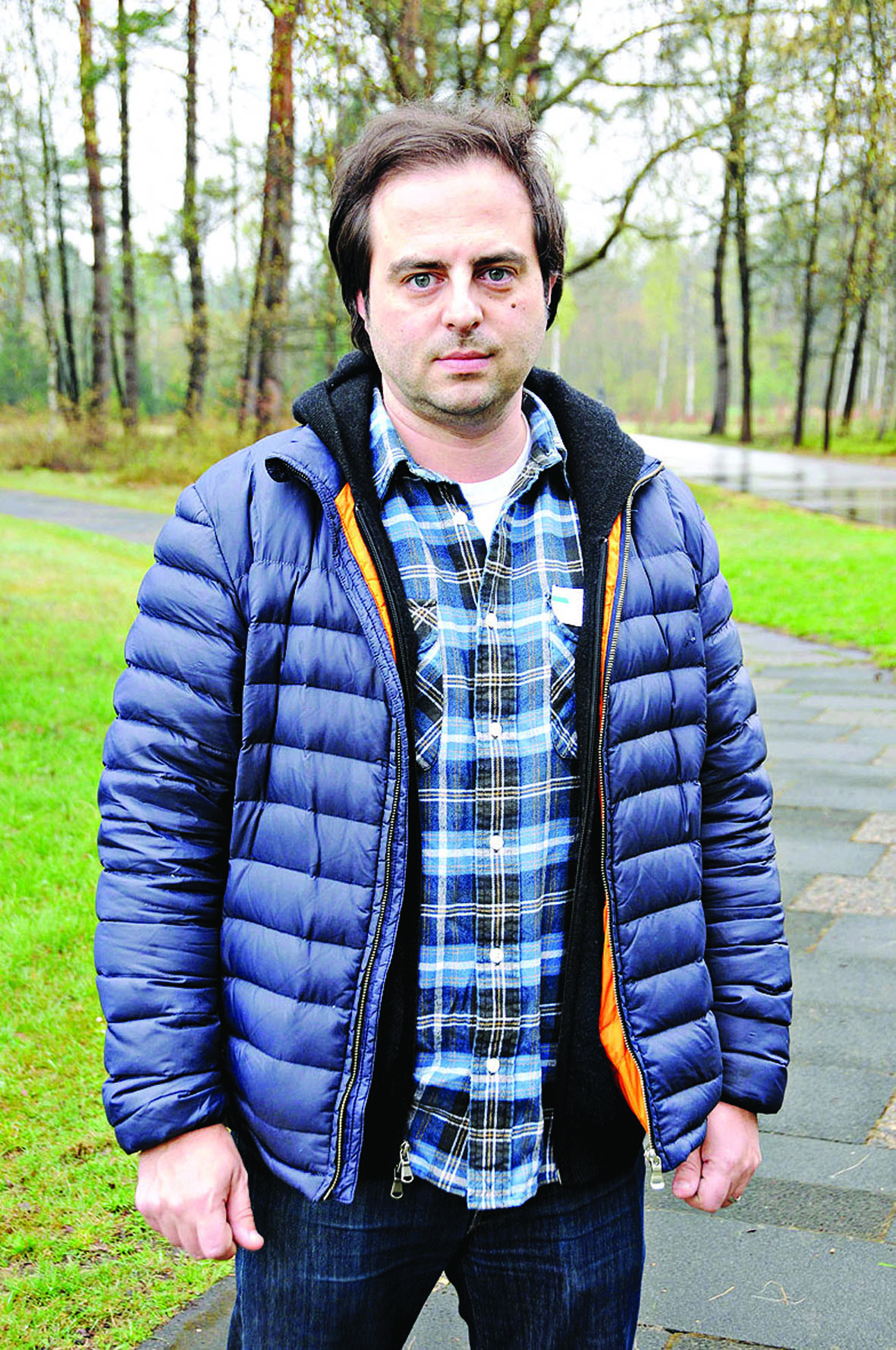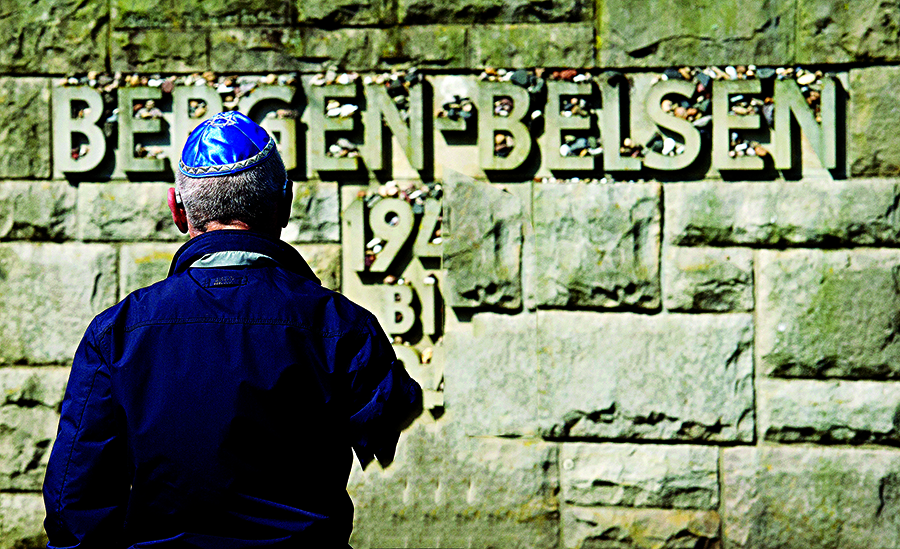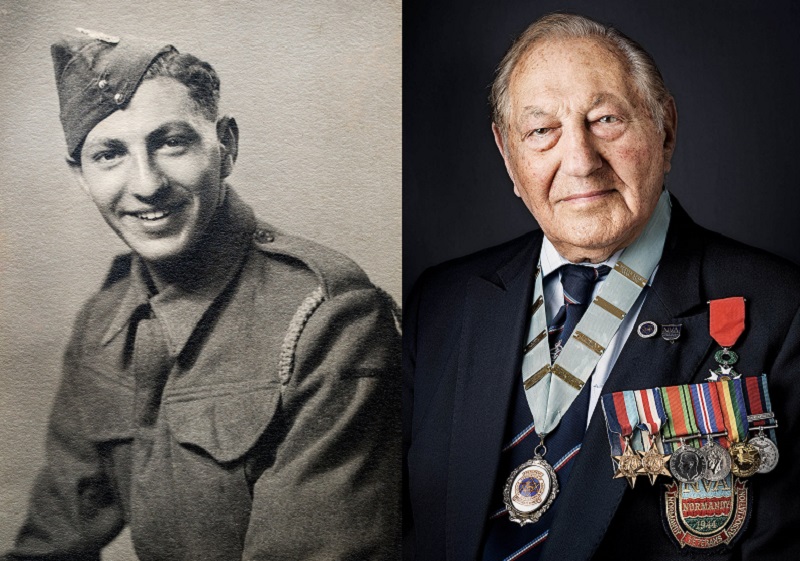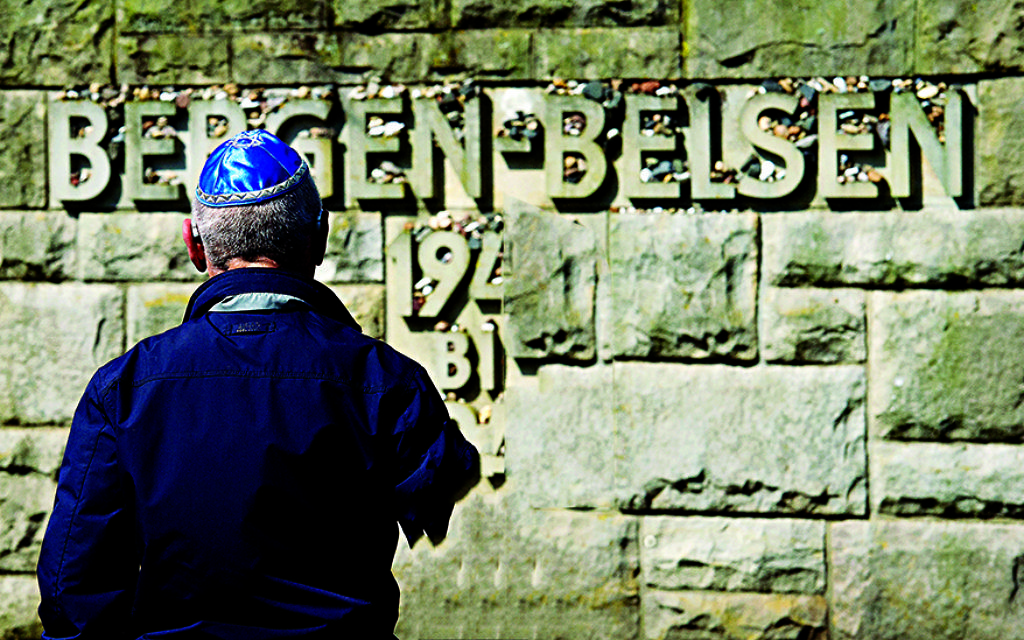SPECIAL REPORT: Back to Belsen to mark the anniversary of liberation
Richard Ferrer, Editor Jewish News joins survivors at Bergen Belsen to mark the 70th anniversary of their liberation

Richard Ferrer has been editor of Jewish News since 2009. As one of Britain's leading Jewish voices he writes for The Times, Independent, New Statesman and many other titles. Richard previously worked at the Daily Mail, Daily Mirror, edited the Boston Jewish Advocate and created the Channel 4 TV series Jewish Mum Of The Year.
Richard Ferrer, Editor Jewish News joins survivors at Bergen Belsen to mark the 70th anniversary of their liberation
So here I am again, moping around another Nazi concentration camp. Why do I keep taking these hellish trips? To Auschwitz, Buchenwald, Dachau, Plaszów and today Bergen Belsen, as part of a UK delegation marking the 70th anniversary of the camp’s liberation by the British army.
Is it a sense of duty? Morbid fascination? To fill a void, scratch an itch? Perhaps I just like a good funeral. What sort of sick tourist am I?
Get The Jewish News Daily Edition by email and never miss our top stories Free Sign Up
Perhaps I’m here for the broken branches of my own family tree; mum’s Polish aunts and uncles and dad’s Ukrainian nieces and nephews.
Perhaps Jannic and Marie, the Ferrers recorded in the Bergen Belsen memorial book of the dead, were among them.
One thing’s for sure. I can’t help myself. The psychological scars cut so deep that even everyday objects and events scream six million: a packed train; an arm tattoo; a wood-fired pizza oven; a pile of tiny shoes at my daughter’s nursery; a sudden knock at the door.
Ocado has a lot to answer for.

Arriving at a rainy Bergen Belsen I recall the disappointment of my first visit back in 1991, being told it had shut for the day and asking if there were any other Nazi camps they could recommend nearby . A flippant remark made, in my defence, by a profound urge to fill that void; scratch that itch.
Had I known Neuengamme, where 50,000 perished, was a mere hour’s drive north, I’d have forced my mates to catch the train there rather than head to Amsterdam to get stoned with all the other inter-railers.
On Sunday I returned during opening hours as part of a 200-strong Holocaust Educational Trust [HET] delegation to mark the liberation anniversary of the final resting place of Anne Frank and 70,000 others.
Among us were 100 teenage ambassadors who’ve taken part in HET’s remarkable Lessons From Auschwitz project, which aims to give two pupils from every school in Britain the chance to visit the most infamous of all Nazi death camps.
We join 1,000 others, including survivors, liberators and political and religious leaders including German President Joachim Gauck.
Auschwitz is the ultimate symbol of terror, but it is Belsen that’s most informed Britain’s relationship with the Holocaust – from liberation by the 11th armoured divison to Richard Dimbleby’s solemn eyewitness reports for the BBC to the displaced persons camp set up at the nearby British Bergen-Hohne army barracks where survivors were nursed.
I walked with Mala Tribich, 84, and Rudi Oppenheimer, 82, both liberated from Belsen. Rudi recalled how his parents both died here. He says: “So many people were ill with diarrhea, pneumonia and other illnesses.
In January 1945 my mother fell ill. There were no doctors, no nurses, no medicines. One evening she disappeared from the hospital barracks. She had died

and her body had been taken away to make room for someone else. She was not yet 43.”
The British burnt this typhus-ridden place to the ground soon after liberation. Today Belsen resembles a landscaped garden more than a gravesite. Lush acres are interrupted by occasional gravestones, including one for Anne and Margot Frank, and raised mounds of earth – mass graves with marker stones stating: ‘Here lie 2,500 dead.’ ‘Here lie 1,000 dead.’ ‘Here lie 800 dead…”
It all seemed so unrecognisable to Mala, who shuts her eyes to help her remember. “My barrack was opposite a hut with a pile of corpses,” she says. I recall a procession of women dragging bodies in blankets or by a limb along the ground, adding to the pile all day long.”

I meet Mervyn Kersh, a 90-year-old British-Jewish soldier, who recalled giving survivors his chocolate rations. “It was only after doing this I learned it was the worst thing I could have done,” he says. “These people were walking skeletons. Chocolate was far too rich for their weak digestive system.”

The day ended with a service in the Jewish cemetery at the nearby British barracks, where 29,000 survivors arrived after liberation. Some 14,000 perished despite the efforts of the British Army.
The mourner’s kaddish and the sounding of The Last Post were painfully poignant, but the most moving moment saw each of us handed a chalk ‘memory stone’ on which to write a few well-chosen words before placing it on the memorial.
I thought of the past and Mala, Rudi and Mervyn.
And I thought of the future and the desire of these remarkable HET young ambassadors to speak on their behalf.
And I wrote the three words on my stone that seem to best sum up the day: ‘History is happening.’
Find out more about the Holocaust Educational Trust and its Lessons From Auschwitz project at www.het.org.uk

Thank you for helping to make Jewish News the leading source of news and opinion for the UK Jewish community. Today we're asking for your invaluable help to continue putting our community first in everything we do.
For as little as £5 a month you can help sustain the vital work we do in celebrating and standing up for Jewish life in Britain.
Jewish News holds our community together and keeps us connected. Like a synagogue, it’s where people turn to feel part of something bigger. It also proudly shows the rest of Britain the vibrancy and rich culture of modern Jewish life.
You can make a quick and easy one-off or monthly contribution of £5, £10, £20 or any other sum you’re comfortable with.
100% of your donation will help us continue celebrating our community, in all its dynamic diversity...
Engaging
Being a community platform means so much more than producing a newspaper and website. One of our proudest roles is media partnering with our invaluable charities to amplify the outstanding work they do to help us all.
Celebrating
There’s no shortage of oys in the world but Jewish News takes every opportunity to celebrate the joys too, through projects like Night of Heroes, 40 Under 40 and other compelling countdowns that make the community kvell with pride.
Pioneering
In the first collaboration between media outlets from different faiths, Jewish News worked with British Muslim TV and Church Times to produce a list of young activists leading the way on interfaith understanding.
Campaigning
Royal Mail issued a stamp honouring Holocaust hero Sir Nicholas Winton after a Jewish News campaign attracted more than 100,000 backers. Jewish Newsalso produces special editions of the paper highlighting pressing issues including mental health and Holocaust remembrance.
Easy access
In an age when news is readily accessible, Jewish News provides high-quality content free online and offline, removing any financial barriers to connecting people.
Voice of our community to wider society
The Jewish News team regularly appears on TV, radio and on the pages of the national press to comment on stories about the Jewish community. Easy access to the paper on the streets of London also means Jewish News provides an invaluable window into the community for the country at large.
We hope you agree all this is worth preserving.
-
By Brigit Grant
-
By Laurent Vaughan - Senior Associate (Bishop & Sewell Solicitors)
-
By Laurent Vaughan - Senior Associate (Bishop & Sewell Solicitors)
-
By Laurent Vaughan - Senior Associate (Bishop & Sewell Solicitors)
-
By Laurent Vaughan - Senior Associate (Bishop & Sewell Solicitors)






















